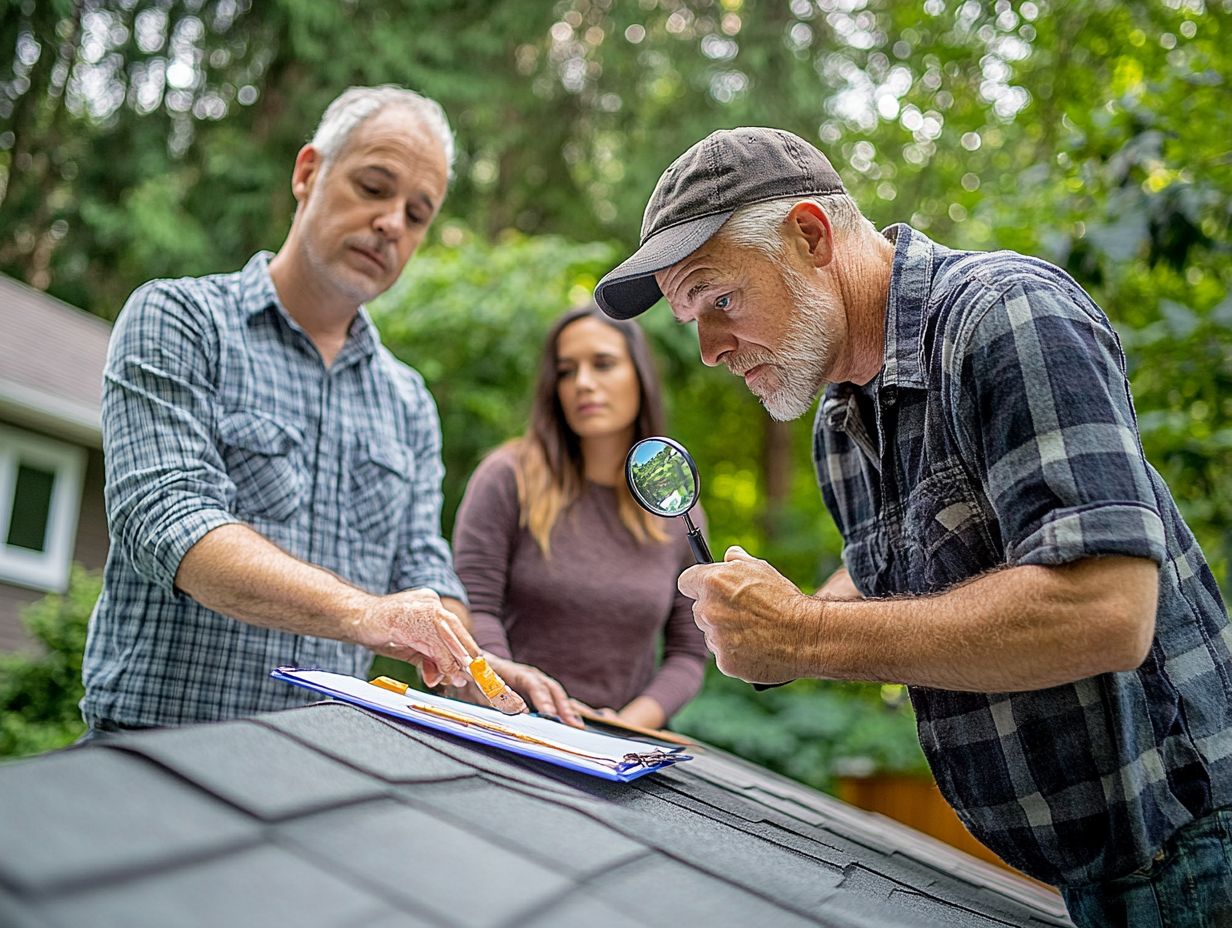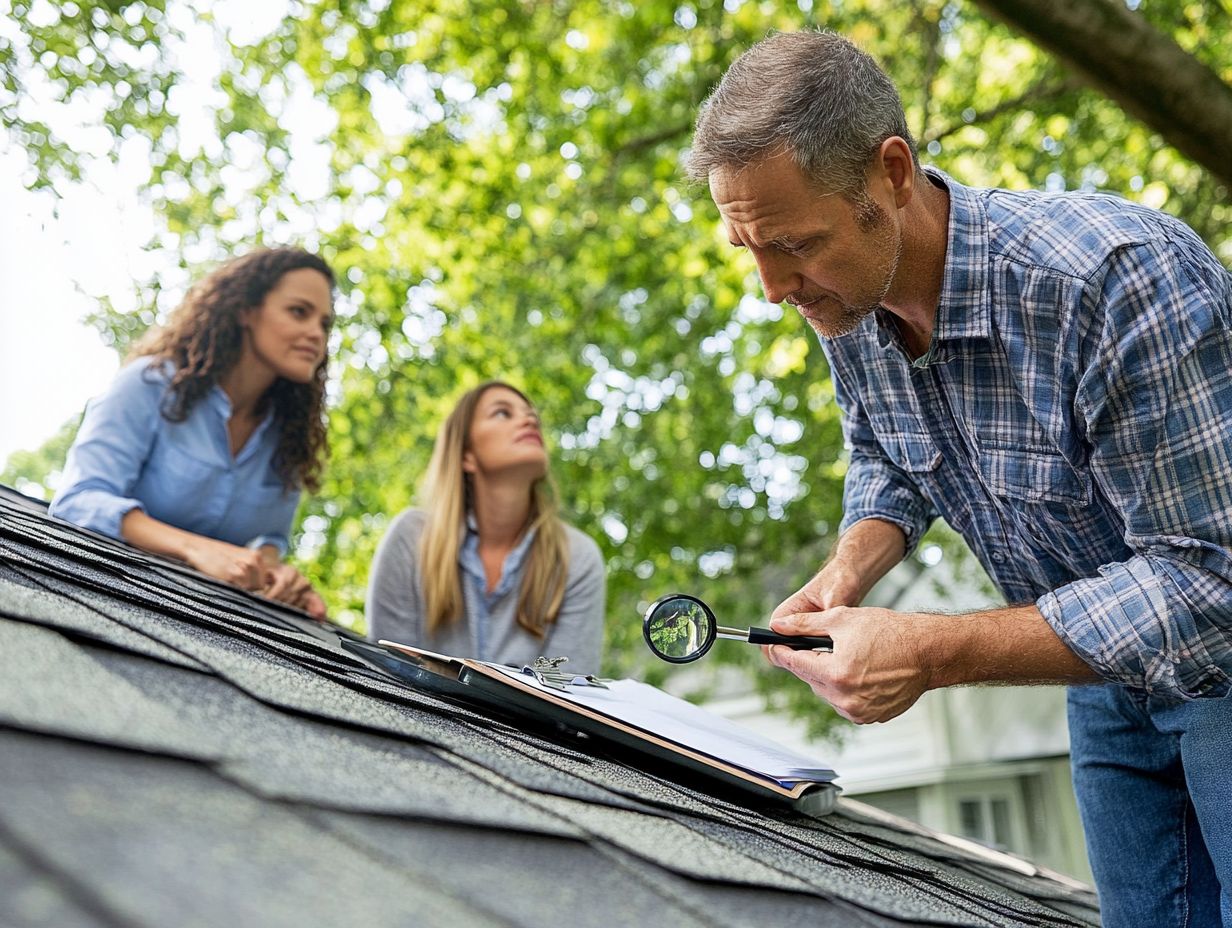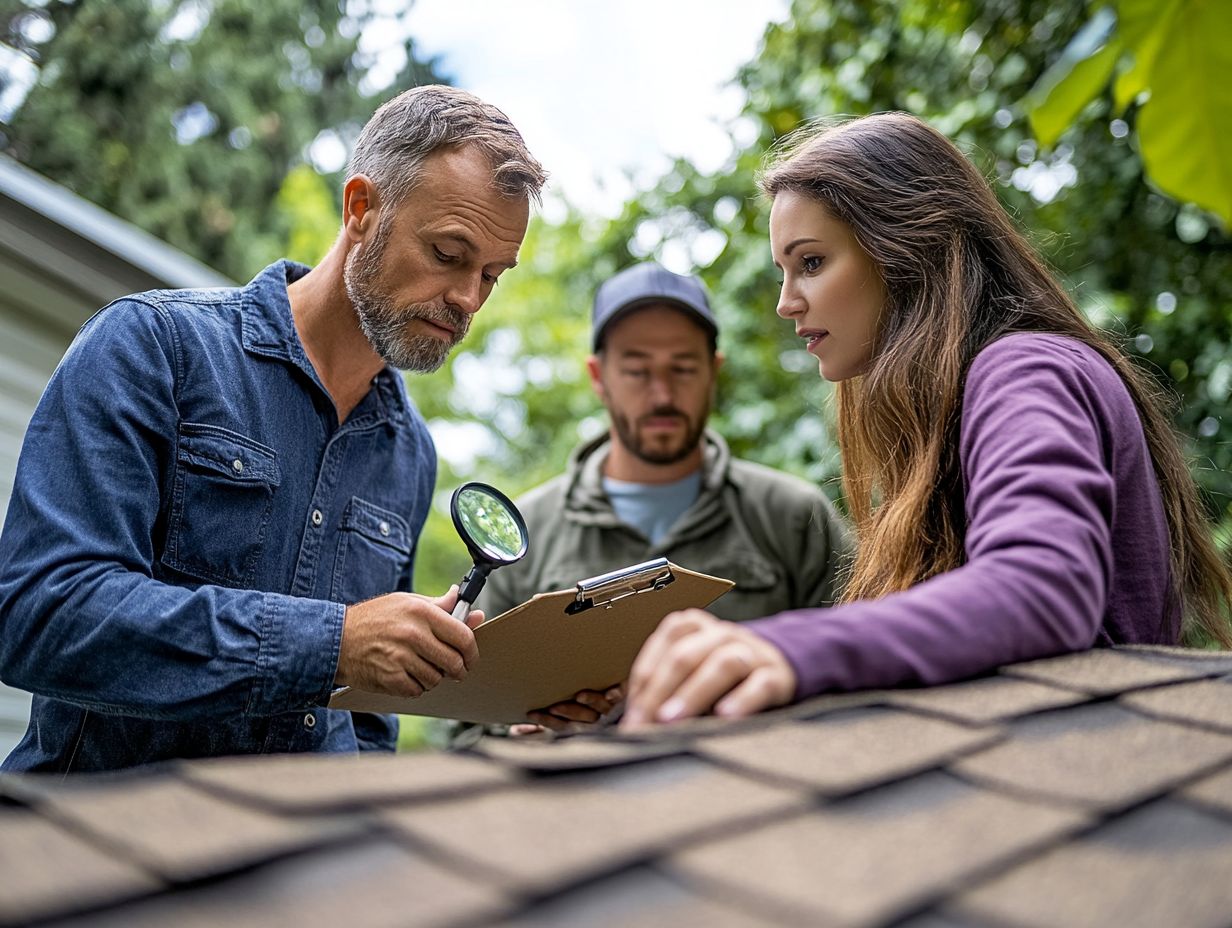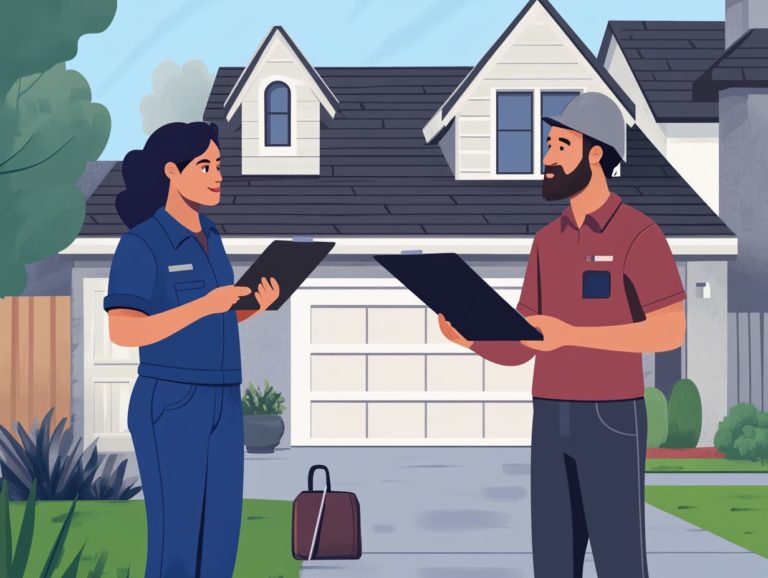The Importance of Home Inspections in Real Estate Deals
Buying or selling a home is a monumental decision. Grasping the condition of a property is essential for making an informed choice.
Home inspections play a critical role in the real estate journey. They unearth potential issues that could impact both the value and safety of a home. This article delves into the essence of home inspections, highlighting their significance for both buyers and sellers.
You ll discover common problems that often arise during inspections. Additionally, you ll find practical tips for navigating the inspection process and handling negotiations.
Whether you re stepping into the market for the first time or are a seasoned seller, this guide empowers you to tackle home inspections with confidence.
Contents
- Key Takeaways:
- What is a Home Inspection?
- Why Home Inspections are Important in Real Estate
- Common Issues Found During Home Inspections
- The Home Inspection Process
- Choosing the Right Home Inspector for You!
- Negotiating Repairs After a Home Inspection
- Final Thoughts and Recommendations
- Frequently Asked Questions
Key Takeaways:

A home inspection is a crucial step in the real estate process. It provides a thorough examination of a property’s condition, and the role of home inspections in real estate transactions allows both buyers and sellers to identify potential problems and address them before closing the deal.
What is a Home Inspection?
A home inspection is an essential process that evaluates the condition of a property. It is typically carried out by a qualified home inspector.
This careful check examines various aspects of the home, including the strength of the structure, electrical systems, plumbing issues, and heating, ventilation, and air conditioning systems. These assessments ensure safety and value of the property.
Both buyers and sellers rely on home inspections to gain valuable insights into the property’s condition, highlighting the importance of pre-purchase home inspections and empowering them to make informed decisions about purchases or sales.
Definition and Purpose
A home inspection is a careful check of a property’s condition carried out by a licensed home inspector. Its purpose is to provide you whether a potential buyer or seller with essential insights into the strength of the structure, safety hazards, and necessary repairs of the property.
This thorough assessment includes various elements, such as the roof, plumbing, electrical systems, and foundation. It ensures you have a complete understanding of any existing issues.
For buyers, this process is invaluable. It empowers you to identify red flags that could lead to costly renovations in the future. Sellers also gain a clear perspective on their property’s condition, enabling them to address repairs or adjust their pricing strategy before hitting the market.
Ultimately, a home inspection is an essential step that highlights the role of home inspections in real estate, paving the way for a smoother and more transparent transaction.
Why Home Inspections are Important in Real Estate
Home inspections are essential in real estate transactions. They offer an impartial assessment of a property’s condition, highlighting the key role of home inspections in real estate that serves both buyers and sellers exceptionally well.
As a buyer, grasping the current state of the property and identifying any potential safety hazards or structural concerns empowers you to make informed choices. You can negotiate repairs or credits based on the findings of the inspection report.
Sellers also gain a strategic advantage by conducting pre-listing inspections. They can pinpoint and address issues before listing. This proactive approach not only enhances their negotiating position but also accelerates the sale process, setting the stage for a smoother transaction.
Benefits for Buyers and Sellers
The benefits of home inspections significantly extend to you as both a buyer and a seller in the real estate market, highlighting the role of home inspections in home sales.
As a buyer, you gain the invaluable opportunity to uncover potential issues think roofing complications, electrical system malfunctions, and safety hazards.
Meanwhile, as a seller, you can proactively address these concerns. This equips you to negotiate credits or repairs effectively. This crucial step promotes transparency and instills confidence in the true value of the property, creating a sense of security for both parties.
For example, if you, as a buyer, discover minor defects during the inspection, you can request repairs or credits upfront. This prevents disputes that might arise after settlement.
On the other hand, if you re a seller who opts for a pre-inspection, you can showcase your property’s condition during negotiations. This potentially allows you to command a higher asking price. This dynamic fosters a constructive dialogue, leading to smoother transactions and ultimately benefiting everyone involved.
Common Issues Found During Home Inspections

Get ready to uncover common issues found during home inspections! Knowing these can save you from costly repairs and ensure a safe home.
During a home inspection, you may encounter common issues. These can impact the safety, functionality, and overall value of the property.
Inspectors often pinpoint structural concerns like foundation problems and roofing complications. They also look for issues related to electrical systems, plumbing, and HVAC systems, which control heating, ventilation, and air conditioning.
Identifying these problems early is essential. This helps you as a potential buyer steer clear of costly repairs down the line, while sellers can ensure their property adheres to safety regulations before it hits the market.
Structural, Electrical, and Plumbing Concerns
Common concerns during home inspections often center around structural integrity, electrical systems, and plumbing issues. Each of these can present significant safety hazards if not promptly addressed.
For example, foundation cracks may indicate serious underlying problems that could jeopardize your home s entire structure. Similarly, instability within walls can create hazardous living conditions.
Many older homes have outdated wiring, which not only underperforms but also introduces a fire risk. Plumbing issues, like persistent leaks, can lead to extensive water damage and mold growth, complicating maintenance and repairs.
Tackling these problems swiftly is essential. By doing so, you can avoid hefty repair bills and ensure both the safety and longevity of your home.
The Home Inspection Process
The home inspection process is a careful assessment that encompasses several key steps, each vital for delivering a thorough report on the property’s condition.
It begins with the home inspector scheduling a visit with you, whether you’re buying or selling. They will discuss your concerns and expectations.
From there, the inspector conducts a thorough check of various elements, including the roof, foundation, electrical systems, plumbing, and HVAC systems.
They document their findings in an inspection report that details any identified issues and provides recommendations for repairs. This structured approach is essential for ensuring that every aspect of the property is evaluated comprehensively.
Step-by-Step Guide
A step-by-step guide to the home inspection process gives you the power to navigate this crucial procedure with confidence and clarity. Understanding the sequence of actions involved can turn what often feels like a daunting task into a manageable journey.
First, connect with a qualified home inspector. Clearly express your needs and schedule a time that works for you.
Once at the property, the inspector will carry out a thorough evaluation, examining the structure, systems, and any potentially hazardous elements of the home.
During this process, it s essential for you to stay engaged. Asking questions not only clarifies findings but also deepens your understanding of the property s condition.
After the inspection wraps up, take the time to carefully review the comprehensive inspection report. This document details the inspector’s observations, outlines potential issues, and offers recommendations for repairs or further evaluations needed.
Choosing the Right Home Inspector for You!
Selecting the right home inspector is paramount for achieving a comprehensive evaluation of a property. Understanding the importance of a home inspection for buyers can greatly influence the quality of the inspection report and the insights available to both buyers and sellers.
When choosing a home inspector, pay close attention to their qualifications, certifications, and affiliations with esteemed organizations like the American Society of Home Inspectors or the International Association of Certified Home Inspectors.
Furthermore, personal recommendations and reviews from past clients can offer invaluable perspectives on the inspector’s reliability and thoroughness.
Negotiating Repairs After a Home Inspection

Negotiating repairs following a home inspection is an essential step in the real estate transaction process. This phase allows you, as a buyer or seller, to address the issues highlighted in the inspection report while ensuring that both parties maintain a fair agreement.
For buyers, understanding the findings is crucial in preparing to negotiate repairs or request credits that can help cover the costs of addressing those issues. Conversely, sellers should approach negotiations with a strategic mindset, carefully considering how the needed repairs might influence the sale price and timing of the transaction.
Tips for Successful Negotiations
Successful negotiations following a home inspection hinge on your ability to communicate clearly. Address the issues presented in the inspection report strategically.
As a buyer, it s crucial for you to effectively express your concerns, particularly regarding safety-related repairs, by highlighting the urgency of these matters. Using persuasive language can significantly strengthen your case for prompt repairs or concessions.
On the flip side, as a seller, you should be prepared to respond thoughtfully, weighing counteroffers or repair guarantees that could help bridge the gap between both parties.
By grasping these negotiation strategies, you can work towards a resolution that satisfies both sides, fostering a collaborative atmosphere throughout the process.
Final Thoughts and Recommendations
Home inspections play a pivotal role in the real estate process, highlighting the importance of home inspections in real estate and significantly affecting the outcomes for both buyers and sellers.
By understanding the importance of detailed checks of the property and their influence on condition assessments, you can approach negotiations with heightened confidence and clarity. Implementing a well-informed inspection strategy is invaluable.
As a buyer, hire qualified inspectors and attend the inspection yourself. This allows you to gain direct insights into potential issues that could arise.
For sellers, addressing any necessary repairs before listing your property can enhance its value and attract more serious offers. Staying informed about local market conditions will empower you during negotiations, giving you an edge.
This preparation sets you up for a winning sale! Whether you’re buying or selling, investing time and resources into the inspection process paves the way for a smoother transaction and leads to more satisfactory outcomes.
Importance of Pre-Listing Inspections
Pre-listing inspections are an invaluable tool for you as a seller, allowing you to identify and address potential issues within your property before it enters the market.
By adopting this proactive strategy, you can significantly boost buyer confidence and present your property in a more appealing light.
Taking care of repairs ahead of time helps you eliminate safety hazards that could discourage potential buyers and might even increase your property’s market value.
This preparation not only sets you up for success but also streamlines negotiations; an informed seller like you is in a stronger position to discuss terms and tackle concerns without any last-minute surprises that could jeopardize the deal.
A pre-listing inspection truly lays the groundwork for a smoother transaction process.
Frequently Asked Questions
What is the importance of home inspections in real estate deals?

Home inspections are crucial in real estate deals as they provide potential buyers with a detailed understanding of the condition of the property. For more insights, check out the importance of home inspections in real estate deals.
What areas do home inspections focus on?
A home inspection includes a thorough examination of the property’s structure, foundation, plumbing, electrical systems, and any other visible components. It also assesses the condition of appliances, HVAC systems, and the overall safety of the property.
Who is responsible for paying for a home inspection?
In most cases, the buyer is responsible for paying for a home inspection. However, in some cases, the seller may agree to cover the cost as part of the negotiation process.
Ready to start your home inspection journey? Contact a professional today!
What happens if issues are found during a home inspection?
If issues are found during a home inspection, the buyer can discuss repairs with the seller. They may also receive a credit toward the purchase price.
In some cases, the buyer might decide to back out of the deal entirely.
Can a buyer waive the home inspection?
A buyer can choose to waive the home inspection as part of the purchase agreement. This is not recommended, as it can lead to problems that are not easy to see, which might be costly later on.
Can a seller benefit from a home inspection?
Yes, a seller can benefit from a home inspection. It helps them find potential issues with the property before listing it for sale.
Addressing these problems can lead to necessary repairs, increasing the chances of a smooth sale and a higher price.






